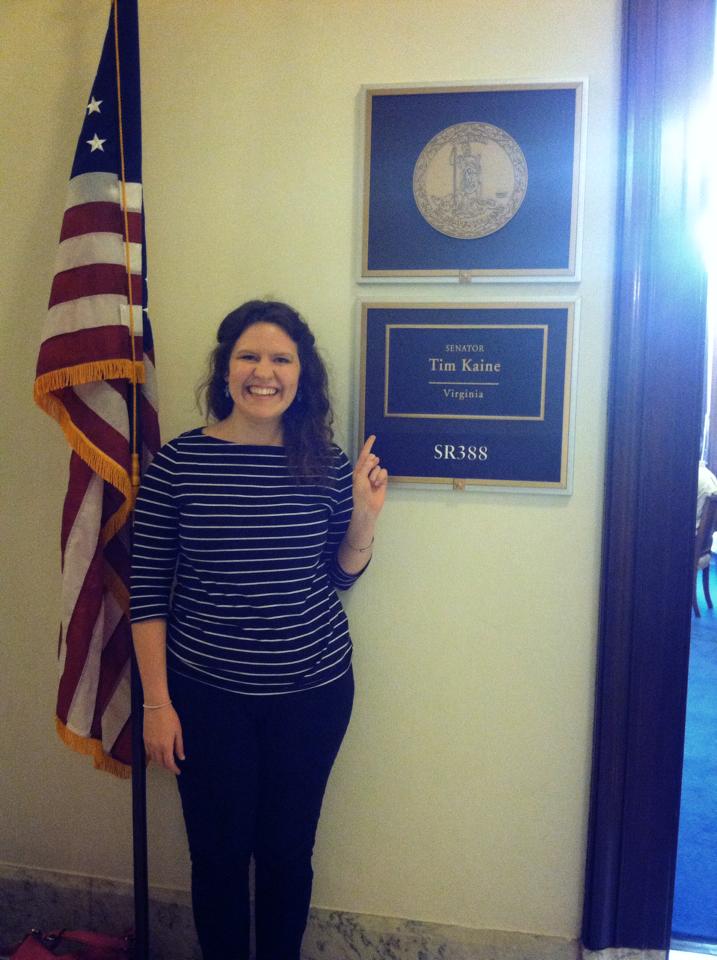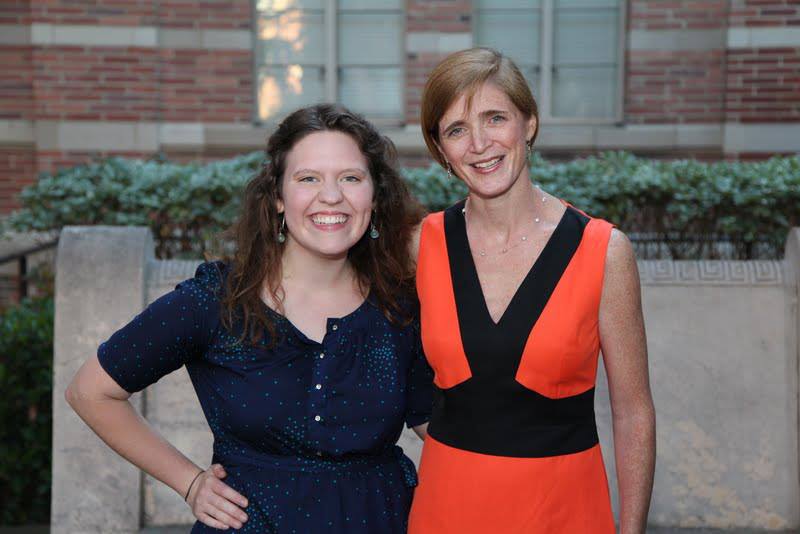We believe young people can end a war. Political activism is an important part of how we address the LRA conflict, and we rely heavily on our supporters to make their voices heard in Congress. Your efforts have made some huge accomplishments possible.
Mobilizing our supporters is a big priority for our mission. Those who continuously engage their representatives in government on behalf of Joseph Kony’s victims, we call Citizen activists. They’ve opted in to be our go-to people when we need to move Congress to action, and they’re really good at it.
Helena Okolicsanyi is one of our dedicated Citizen activists, and she has been involved in human rights awareness since high school. But we’ll let her tell that story herself:

1. How did you get involved with Invisible Children?
I became involved with Invisible Children (IC) in the spring of 2011 through my close friend Charles. We helped put on a screening of the film Tony with that year’s roadies. Tony had a huge impact on me and prompted me to get involved through that year’s “25” event.
That April 25, in commemoration of 25 years of LRA attacks, I stayed silent for 25 hours and fundraised for Invisible Children. At the event, I talked to Adam Finck and Lisa Dougan about Invisible Children and the counter-LRA programs. Through that event, I found a good group of now close friends who helped form an IC chapter at our school. After only a few months of fundraising during Front Line campaign, we raised over $8,000.
I have always cared about the world around me and had a desire to stand up for human rights issues. Invisible Children in Tony wasn’t just telling me about another human rights crisis and prompting me to care, but also prompting me to take action. I had never been told concrete ways I could get involved in something that was happening across the world. That made a huge impact for me as a college student.
2. What was it like to get involved in advocacy?
My involvement began during the Kony 2012 campaign, where I helped lobby with fellow members of the Invisible Children George Mason University community. I saw getting involved on the advocacy side as a tangible way to make a difference. I’ve always believed that individuals have a voice; and meeting with my members of Congress and setting up lobby meetings has been really rewarding for me. It’s hard to find quantitative ways to measure success, and tracking a bill that you advocate for is one way of doing that.
I became a state lobby leader last year with the Enough Project. It was such a rewarding experience, to finally know that yes I could set up lobby meeting and run meetings with fellow supporters. It’s through that, and previous lobby meetings, that I told Invisible Children I wanted to be the first person on their list for any of their lobby events. Through this I’ve gotten really close to the IC office and other supporters.
3. Why do you think political activism is important for young people?
I think it’s really easy for young people to become jaded and think they have no voice. There are a lot of challenges that stack up against our generation, yet getting involved on an advocacy scale about something you are passionate about really gives you a sense of purpose. It’s a big privilege to live in the United States where I can meet with my members of Congress, vote, and hold them accountable. There are countries around the world that only dream of having that impact on their government. Why shouldn’t you take advantage of that? People start to become complacent with politics, but what’s better: sitting away and thinking nothing is going to happen, or trying to make a difference? I’m an idealist in that way.

4. What advice would you give those who haven’t been very involved in their government?
I think people often think that members of Congress are these people that they have no access to. That’s not true. Members of Congress are just people, and more often than not, you are more of an expert on a situation. Only 5% of American citizens actually meet with their members of Congress. If you come in with knowledge and passion, it speaks volumes about your cause, particularly as a young person. I would encourage anyone who wants to take a bigger step into IC to become part of the advocacy side. It is by far the most rewarding thing I’ve found about IC and has gotten me to pick up the phone on other issues I care about.
5. Why do you believe in extending the U.S. advisory troops for the counter-LRA mission?
Because it’s working. Each day, we hear reports of the LRA weakening and more LRA defections. If we are to leave before the mission is complete, without a long-term strategy, that decision will cause so much harm to these LRA affected communities. The U.S. advisory troops are working with on the ground local leaders and providing them with technological training to find Joseph Kony.
WE STILL NEED YOUR VOICE. CONTACT YOUR REPRESENTATIVE AND LET THEM KNOW YOU CARE ABOUT THE LRA CONFLICT.
IF HELENA’S STORY INSPIRES YOU, SIGN UP TO BECOME A CITIZEN ACTIVIST.
Think people should hear about this?